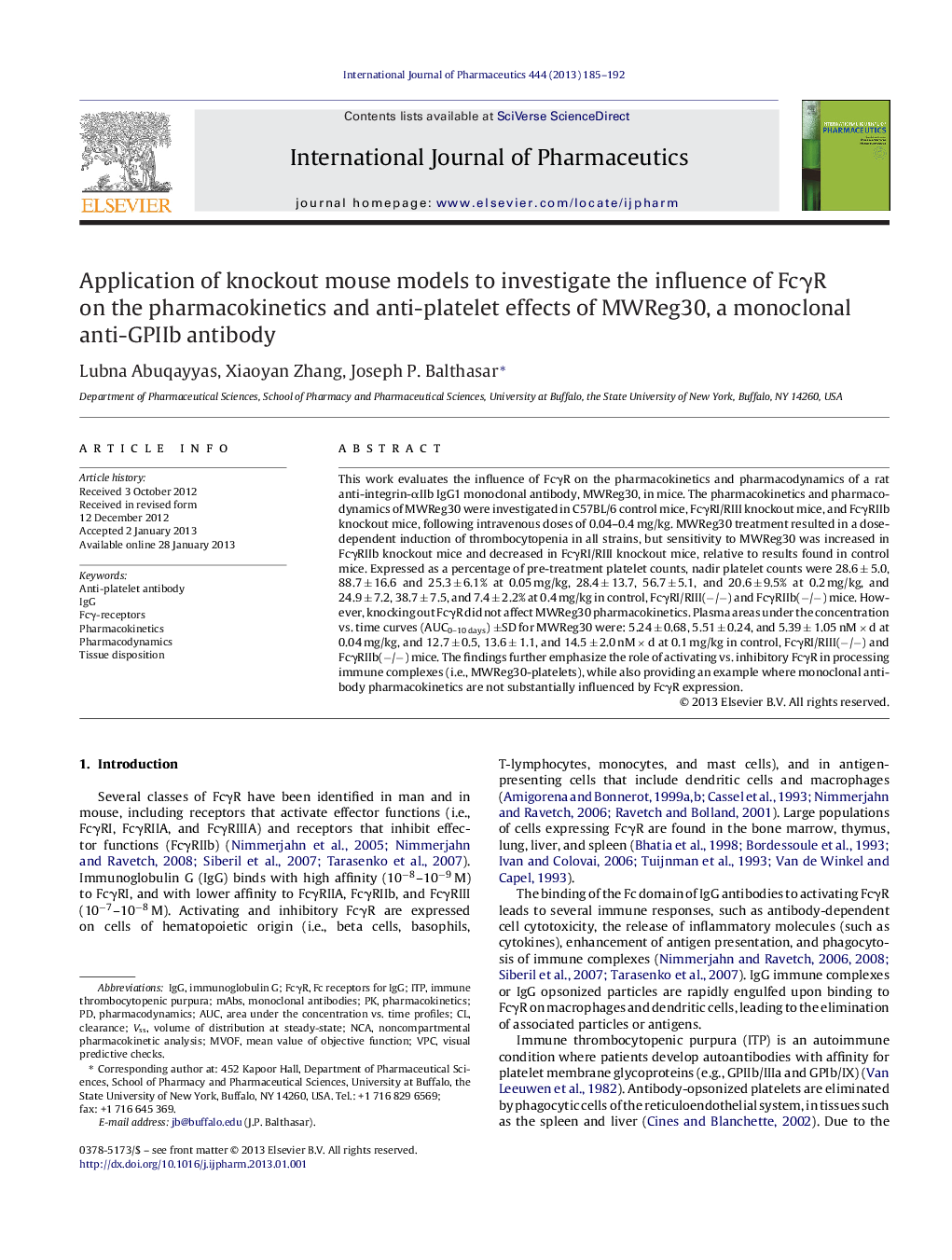| Article ID | Journal | Published Year | Pages | File Type |
|---|---|---|---|---|
| 2502503 | International Journal of Pharmaceutics | 2013 | 8 Pages |
This work evaluates the influence of FcγR on the pharmacokinetics and pharmacodynamics of a rat anti-integrin-αIIb IgG1 monoclonal antibody, MWReg30, in mice. The pharmacokinetics and pharmacodynamics of MWReg30 were investigated in C57BL/6 control mice, FcγRI/RIII knockout mice, and FcγRIIb knockout mice, following intravenous doses of 0.04–0.4 mg/kg. MWReg30 treatment resulted in a dose-dependent induction of thrombocytopenia in all strains, but sensitivity to MWReg30 was increased in FcγRIIb knockout mice and decreased in FcγRI/RIII knockout mice, relative to results found in control mice. Expressed as a percentage of pre-treatment platelet counts, nadir platelet counts were 28.6 ± 5.0, 88.7 ± 16.6 and 25.3 ± 6.1% at 0.05 mg/kg, 28.4 ± 13.7, 56.7 ± 5.1, and 20.6 ± 9.5% at 0.2 mg/kg, and 24.9 ± 7.2, 38.7 ± 7.5, and 7.4 ± 2.2% at 0.4 mg/kg in control, FcγRI/RIII(−/−) and FcγRIIb(−/−) mice. However, knocking out FcγR did not affect MWReg30 pharmacokinetics. Plasma areas under the concentration vs. time curves (AUC0–10 days) ±SD for MWReg30 were: 5.24 ± 0.68, 5.51 ± 0.24, and 5.39 ± 1.05 nM × d at 0.04 mg/kg, and 12.7 ± 0.5, 13.6 ± 1.1, and 14.5 ± 2.0 nM × d at 0.1 mg/kg in control, FcγRI/RIII(−/−) and FcγRIIb(−/−) mice. The findings further emphasize the role of activating vs. inhibitory FcγR in processing immune complexes (i.e., MWReg30-platelets), while also providing an example where monoclonal antibody pharmacokinetics are not substantially influenced by FcγR expression.
Graphical abstractFigure optionsDownload full-size imageDownload high-quality image (165 K)Download as PowerPoint slide
